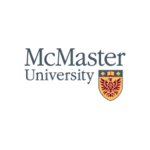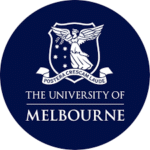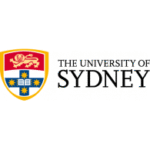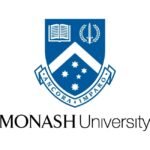
Study in Australia
Australia, home to 24.5 million people, offers far more than just its iconic wildlife, bush tucker, and breathtaking natural beauty. It's also one of the top destinations in the world for international education. In 2018 alone, Australia welcomed approximately 690,468 international students—a significant 11% increase from the previous year. This growth reflects Australia's strong reputation for high-quality education, diverse cultural experiences, and vibrant student life.
According to the University College London’s Centre for Global Higher Education, Australia is projected to rank as the second most popular study abroad destination, just after the United States. With over 1,100 institutions and more than 22,000 courses, Australia’s education system is recognized globally for its excellence and its ability to produce high-achieving graduates. International students can choose from a wide range of programs offered by universities, vocational institutions, and English language schools—ensuring there’s something to suit every academic and career goal. If you're unsure which course or pathway is right for you, a Study in Australia consultant at MasterKey Solutions can help guide your decision.
According to the latest Best Student Cities ranking, seven Australian cities are listed among the top 100 globally. This ranking is based on a variety of factors, including student feedback, university rankings, student diversity, employer activity, and cost of living—making Australia an increasingly attractive destination for international students. Australia also boasts one of the highest standards of living in the world. Compared to countries like the United States and the United Kingdom, both tuition fees and living expenses in Australia are generally more affordable. Additionally, international students have the opportunity to work part-time while studying, helping to offset their living costs. Numerous scholarships are also available to ease the financial burden. With English widely spoken—particularly among the large immigrant population—international students often find it easier to adapt and integrate into the community. Studying in Australia offers more than just academic excellence. It’s a unique blend of quality education, cultural diversity, and personal growth opportunities—making it a truly transformative experience for students from around the world.

Education System for Study in Australia
The Australian education system is structured into three main levels: primary, secondary, and tertiary education. Schooling typically spans 13 years, encompassing primary, secondary, and senior secondary levels—equivalent to Grade 12 in India. In fact, university programs in Australia are generally recognized as equivalent to those offered by Indian universities, while vocational education and training (VET) programs are similar to diploma courses in India, with a strong focus on practical skills and hands-on learning.
=> Universities
=> Vocational Education and Training (VET) Institutions.
Australia is home to 43 universities offering undergraduate, graduate, and doctoral degrees. The education system is supported by both government (TAFEs) and private institutions, with qualifications developed in collaboration with industry. Courses are designed to provide practical, hands-on knowledge and are taught by experienced industry professionals. Students benefit from a mix of classroom learning and real-world exposure, with some courses offering credit toward higher education degrees. For personalized guidance, students can consult a Study in Australia expert at MasterKey Solutions to help find the right course.
@ Certificate I (4–6 months): Develops basic-level skills for entry-level roles.
@ Certificate II (Approx. 1 year): Prepares students for work as advanced operators.
@ Certificate III (Approx. 1 year): Trains qualified tradespeople or technicians.
@ Certificate IV (12–18 months): Equips learners for supervisory positions.
@ Diploma (18–24 months): Designed for para-professional roles.
@ Advanced Diploma (2–3 years): Prepares students for junior managerial roles.




Accountancy | 18 Months | AU$ 30,000
Actuarial Science | 3 Years | AU$ 32,000
Agricultural sciences | 3-4 Years | AU$ 48,500
Architecture | 3 Years | AU$ 102,336 – 133896
Biomedical Engineering | 3 Years | AU$ 194,000
Business Management | 3 Years | AU$ 59.966
Medicine | 6 Years | AU$ 490,990
Dentistry | 5 Years | AU$ 70,000- 1,50,000
Law| 5 Years | 4 Years | AU$ 11,563
Creative Arts and Design | 3 Years | AU$ 40,000
Creative Arts and Design | 3 Years | AU$ 40,000
Engineering | 4 Years | AU$ 37,000 - 49,000
Environmental Science |18 Months | AU$ 32,224
Computer Science/IT | 3 Years | AU$ 35,616
Anthropology | 3 Years | AU$ 102,000
Applied Anthropology and Participatory Development | 3 Years | AU$ 45,270
Biological Anthropology | 3 Years | AU$ 29,434
Clinical Psychology | 2 Years | AU$ 51,000
Associate degree | 12th Pass or Certificate III or IV | 2 Years
Bachelor degree | 12th Pass or Certificate III or IV | 3 Years
Bachelor degree (Honours) | It is possible that you can graduate with an Honours degree after earning your bachelor's degree and doing well in it. | 4 Years
Master's Degree (coursework) | Bachelor's degree | 1-2 Years
Master's Degree (Research) | Bachelor's degree or Bachelor (Hons.) degree | 2 Years
Doctoral Programs | Master's degree | 3-4 Years
Graduate Certificate | Bachelor's degree | 6 Months
Graduate Diploma | Bachelor's degree | 1 Year
IELTS | At least 7 is required for each of the 4 test categories
TOEFL | At least 24 is required for listening, 24 for reading, 27 for writing, and 23 for speaking
PTE Academic | At least 65 is required for each of the 4 test categories
CAE | At least 185 is required in each of the 4 test categories
OET | At least 185 is required in each of the 4 test categories
Melbourne | Brisbane | Sydney | Canberra | Adelaide | Perth | Gold Coast | Wollongong | Newcastle | Bathurst
When choosing a study destination, understanding the associated costs is essential. In Australia, expenses can vary significantly depending on factors such as the level of study (undergraduate or postgraduate) and the location of the institution. Beyond tuition fees, students should also consider living expenses, accommodation, and additional charges for course materials and access to university resources. Tuition fees in smaller cities or suburban areas may be slightly lower than those in major cities like Sydney and Melbourne. For detailed information about living costs and fee structures in specific Australian cities, it's best to consult a Study in Australia advisor at MasterKey Solutions.
=> Undergraduate degree | Cost Per Year
=> Post-graduate degree | AU $22,000 – AU $50,000
=> MBA | Approximately AU $ 41193 for 18 months
=> Doctoral degree| AU $18,000 and AU $42,000
=> Vocational Educational Training | AU $4,000- AU $22,000 according to your level of education
@ A valid passport is required.
@ Determine which visa is appropriate for you.
@ Typically, a subclass 500 is the best choice if you are studying full-time.
@ Create a user account.
@ Upload the documents to your account.
@ Your address, passport information, and email addresses may also be included.
@ Pay the visa application fee.
@ Attend an interview at the Visa office.
@ Obtain biometric and character certificates from the Visa office
@ Get a health checkup from the panel doctors and obtain a health certificate.
Note: Having documents translated into English from other languages is essential. Those living in Australia must use translators who are accredited by the National Accreditation Authority as translators and interpreters.
Listed below are a few documents you need to review quickly:
=> Prove the cost of travel, the cost of living for one year, and the cost of tuition fees
=> Birth certificate
=> Passport Identity Page
=> National Identity Card
=> A CV
=> All Pages of Household Registration Book
=> Confirmation of Enrolment (COE)
=> Health Assessment Portal ID
=> Overseas Student Health Cover (OSHC)
=> Police Clearance Certificate
=> English language test scorecards
=> GTE (Genuine Entrant Statement)
=> Australia Awards Scholarships
Formerly known as the Australian Development Scholarships (ADS), the Australia Awards Scholarships are prestigious, long-term awards administered by the Department of Foreign Affairs and Trade (DFAT). These scholarships aim to promote development and education opportunities for individuals from developing countries, with a strong focus on the Indo-Pacific region. Eligible students can apply for full-time undergraduate or postgraduate study at participating Australian universities and Technical and Further Education (TAFE) institutions. The scholarships cover tuition fees, living expenses, travel, and other essential costs, offering recipients a valuable opportunity to gain world-class education and contribute to the development of their home countries.
=> Destination Australia Scholarships
As part of the Destination Australia scholarship program, the Australian Government provides financial assistance to international students and Australian students. A total of over 1,000 scholarships worth $15,000 are awarded each year to support the study and living expenses of students attending regional campuses of eligible universities in Australia.
=> International Postgraduate Research Scholarships
As part of their postgraduate research degree, students enrolled in IPRS have the opportunity to gain real-world research experience with leading Australian researchers. There are two types of scholarships available to students: a Master’s Degree by research scholarship for two years and a Doctorate by research scholarship for three years. Tuition and health insurance are included in study abroad scholarships.
=> Students can work up to 20 hours per week during class sessions.
=> During holidays or academic breaks, they may work up to 40 hours per week
=> Students may enter Australia up to 90 days before their course begins but can only start working after the course starts.
=> Spouses or family members of students can also work up to 20 hours per week once the student’s course has commenced.
=> Students must maintain regular attendance and meet all course requirements.
=> Holding Overseas Student Health Cover (OSHC) is mandatory.
=> A student visa can be applied for after receiving an official letter of acceptance.
- 1 Are there any minimum qualifications required to study in Australia?
- Each educational institution in Australia sets its own specific admission criteria. These requirements can vary based on the course, level of study, and institution. To get accurate and up-to-date information, it’s recommended to contact the institution directly or seek guidance from a trusted online consultancy such as MasterKey Solutions, which can help streamline the application process and ensure you meet all necessary qualifications.
- 2 In what circumstances can I study in Australia without a student visa?
- Students planning to study in Australia for less than three months may be eligible to apply for a tourist visa, rather than a student visa.
- 3 After completing a master's degree, what are the residency requirements for Australian students?
- Depending on your qualification, you may be eligible to stay in Australia for 18 months to up to four years after completing your studies. The first step is to apply for the Temporary Graduate Visa (Subclass 485), which allows international graduates to live, work, and gain professional experience in Australia following graduation.
- 4 Is it possible to convert my student visa into a work visa in Australia?
- Completing your degree in Australia does not automatically grant you the right to stay and work in the country. If you wish to remain in Australia after graduation, you will need to apply for a relevant work visa, such as the Temporary Graduate Visa (Subclass 485) or another visa pathway based on your skills and qualifications.
- 5 What is the Australian credit system?
- Each subject in an Australian academic program typically carries 6 to 8 credit points, with an expected number of study hours per week for each subject. If you have prior work experience or relevant publications, you may be eligible to receive credit exemptions, potentially reducing the total credits required to complete your program. For personalized guidance, it’s best to consult an admissions representative or course advisor at your chosen university. Additionally, a study abroad counselor can help you understand credit requirements and explore credit transfer or exemption options.
 Demos
Demos  Colors
Colors 
 Docs
Docs  Support
Support 
























